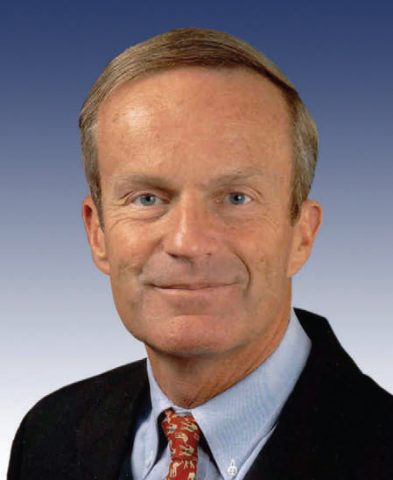As pundits focus on Rep. Todd Akin’s egregious comments about “legitimate rape” rarely resulting in pregnancy, an even more alarming facet of the controversy is being overlooked.
Akin sits on the House of Representatives’ Committee on Science, Space and Technology, and controls Federal funding for scientific research into areas as varied as climate change, space exploration, natural disaster management and geology. Even with his obvious lack of knowledge about the female reproductive system, Akin appears fully qualified to assess science-related legislation and appropriate taxpayer dollars for the many agencies the Committee oversees.
That’s because a background in science is not a requirement for membership in the committee. Of the 36 current members, only seven worked in a scientific field—mainly medicine—prior to being elected to the House. Their work histories include positions as a physiology professor, general practice physician, anesthesiologist, registered nurse, heart surgeon (two members) and civil engineer. Akin is not one of these.
The Chairman of the House Committee on Science, Space and Technology is Republican Rep. Ralph Hall of Texas, a former lawyer, who is the eldest current member of Congress at 89 years old. He presides over a subtly powerful group with full or partial jurisdiction over all government agencies with any link to non-defense scientific inquiry, including the National Aeronautics and Space Administration, the National Science Foundation, the National Oceanic and Atmospheric Administration, the National Weather Service, the Federal Emergency Management Agency, the U.S. Geological Survey, the Environmental Protection Agency and the Department of Energy—just to name a few.
Yet the committee’s primary goal is thwarting funding for climate research, impeding the Obama Administration’s clean energy initiatives, and lobbying for continued emphasis on manned space flight. (Five of the committee’s members hail from Texas, home of the Johnson Space Center—more than any other state represented on the committee.)
Last June, for example, Chairman Hall grilled the Director of the White House Office of Science and Technology Policy, Dr. John Holdren, about its “concerns” with the Obama Administration’s policies to “restrict oil and gas exploration and production,” “reject the Keystone pipeline,” and the proposed Clean Energy Standard “that would mandate Americans buy electricity from more expensive and less reliable energy sources such as wind and solar power.”
Republicans on the House Science Committee claim to want sound science to back up government policies, but its recent legislation is fixated on cost-cutting and obstruction. The National Climate Service Act of 2009 (H.R. 2407) is a typical scenario. The bill would have created a National Climate Service within the National Oceanic and Atmospheric Administration to monitor weather patterns and “climate variability and change, and its effects on communities.” Science Committee republicans tacked on amendments designed to delay or halt the implementation of the act, including requiring a detailed cost analysis for each agency involved in the Climate Service, requiring a survey to determine if there was a need for the Climate Service, adding a detailed cost report for implementation and maintenance of the service, and “sunsetting” the program for reevaluation in 2016. All failed. The Act itself, amended to the American Clean Energy and Security Act of 2009 (H.R. 2454), passed the House but died in the Senate.
With politicians like Todd Akin assessing the viability of scientific initiatives, the integrity of the House Science, Space and Technology Committee’s legislation is questionable. Perhaps Akin, and his colleagues on the committee, should brush up on the basics of human reproduction before tackling the biggest scientific challenges of our time.


What Do You Think?